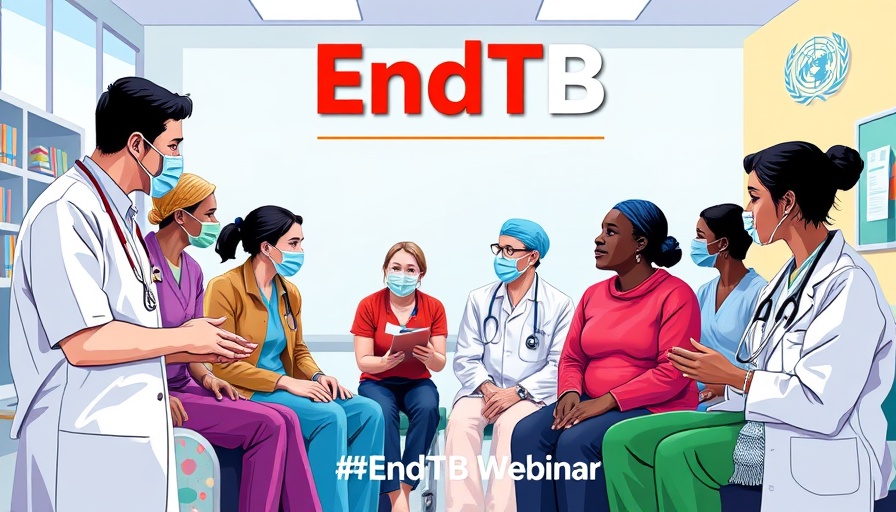
Understanding the Urgency of Tuberculosis Among Vulnerable Populations
Tuberculosis (TB) remains a critical global health issue, with certain populations disproportionately affected. The upcoming #EndTB webinar, organized by the World Health Organization (WHO), aims to address these disparities by highlighting a newly released policy brief focusing on high-risk groups, including those who are marginalized or economically disadvantaged. This event is not only about presenting data; it’s about fostering a deeper understanding of TB and the urgent need for equitable health strategies.
The Burden of TB: A Social Perspective
Globally, TB is one of the top infectious disease killers, particularly affecting those who live in low-income areas or face systemic stigmas. According to the WHO, an estimated 10 million people fell ill with TB in 2020 alone, with significant numbers coming from vulnerable communities. This highlights a critical issue: health inequity. During the webinar, WHO leaders and advocates will present data illustrating how social determinants—like poverty, housing instability, and lack of access to education—fuel TB’s persistent spread. Understanding these social contexts is crucial for implementing effective prevention strategies that can reach these groups where they live.
Bridging the Gap: Innovative Strategies for TB Care
The launch of the policy brief will showcase various innovative approaches that have been successfully used to reach people at risk of TB. Examples may include mobile health units that deliver care directly to communities in need, culturally tailored health education programs designed to reduce stigma, and outreach efforts that engage critically underserved populations. By sharing these real-life examples, the WHO aims to inspire similar actions worldwide. For those of us interested in health care improvements, these examples serve as critical case studies in providing effective responses during global health crises.
Combating Stigma: A Path Towards Universal Access
One of the core issues that will be addressed during the webinar is the stigma and discrimination that many people face when seeking TB care. Stereotypes attached to TB often deter individuals from accessing services they need, perpetuating the cycle of infection. The WHO policy brief emphasizes a need for intervention strategies that actively combat stigma, showcasing successful community engagement efforts that prioritize education and awareness as tools for change. By fostering an open dialogue about TB, we can reduce the fear surrounding it, making health services more accessible and acceptable to those affected.
Who Should Attend the Webinar and Why?
The #EndTB webinar invites diverse stakeholders, including government officials, civil society representatives, health practitioners, and researchers. This inclusive approach is essential, as tackling TB requires a multifaceted strategy that unites various sectors. For individuals in healthcare or related fields, participating in this webinar is an opportunity to gain insights from experts and share innovative ideas for potential collaborations. It’s a chance to be part of a larger movement advocating for universal access to health care for all.
Looking Forward: The Future of TB Eradication
As we look toward the future, the insights shared during the #EndTB webinar will undoubtedly play a critical role in shaping public health policies. The webinar intends not only to disseminate information but also to spark discussion on effective solutions and foster connections between varied stakeholders. The goal is clear: to eradicate TB and ensure comprehensive access to healthcare services, particularly for those at highest risk. The ongoing collaboration among governments, health organizations, and communities presents a promising approach to addressing this longstanding crisis.
Join the Movement: Register for the Webinar
For anyone looking to get involved in the fight against TB, this webinar is a crucial step. By attending, stakeholders can contribute fresh ideas, learn about successful interventions, and understand how best to advocate for vulnerable populations. Register now and be part of the change necessary to achieve better health outcomes for all.
In summation, the forthcoming WHO #EndTB webinar presents an invaluable opportunity to explore the multifaceted issues surrounding TB and galvanize efforts to protect those most vulnerable in our communities. With a collective commitment, we can pave the way for a healthier future.
 Add Row
Add Row  Add
Add 




Write A Comment